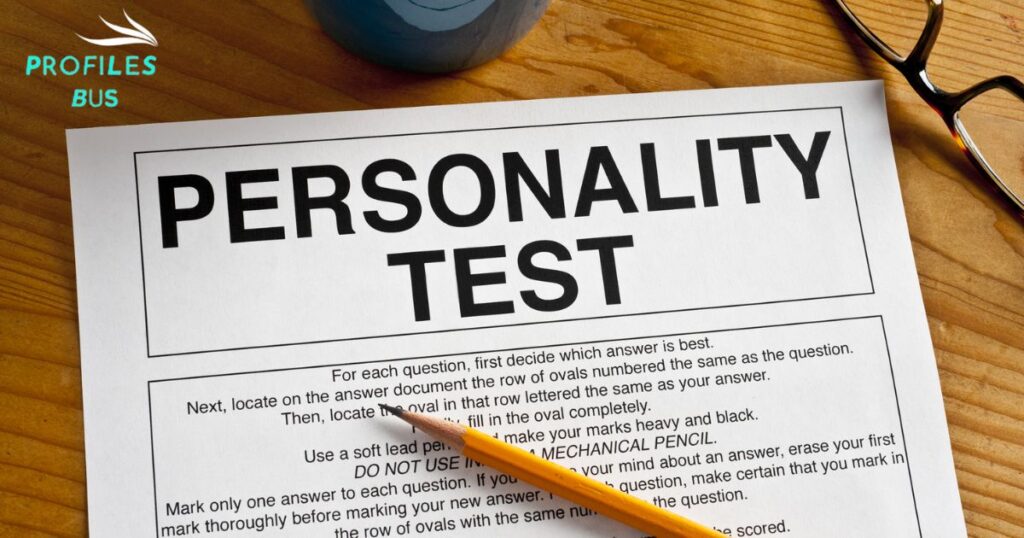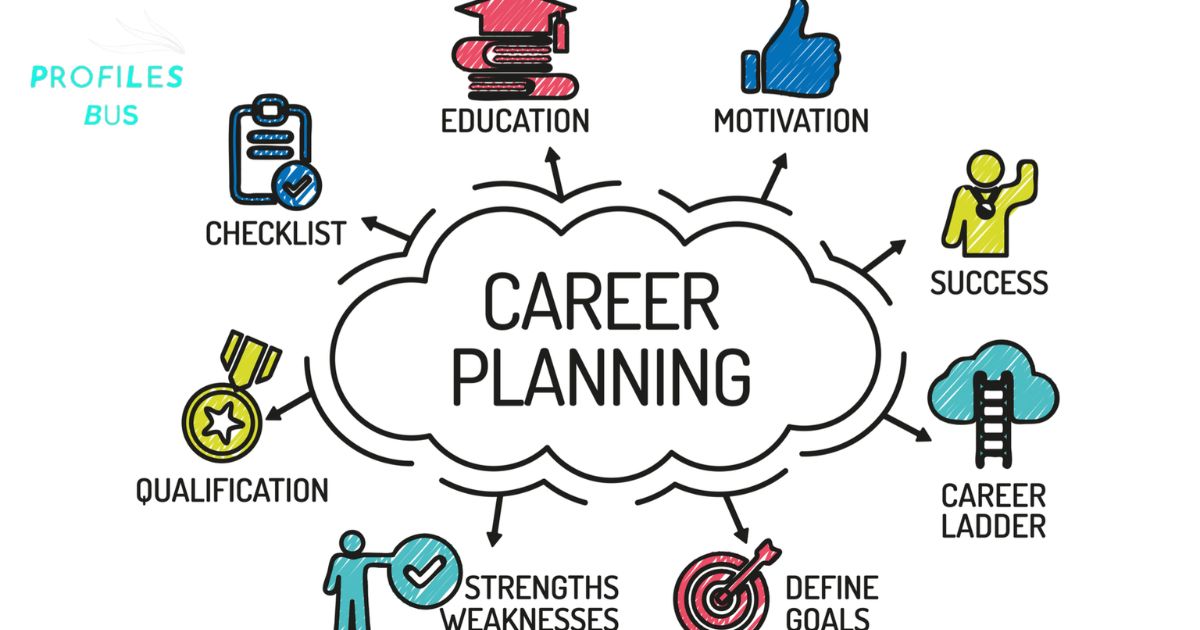Personality test is a tool designed to assess and categorize an individual’s character traits and behavioral tendencies. It typically uses standardized questions or activities to evaluate aspects like temperament, emotional patterns and social interactions.
Imagine discovering strengths and weaknesses you never knew you had, guiding you towards a job that truly resonates with your character. “Have you ever wondered how a simple personality test could shape your career path? From enhancing your job performance to steering you towards roles you’re naturally suited for. A personality test could be the key to unlocking your professional potential.
Personality test can shape your career options by highlighting your innate strengths and preferences. It helps employers match you to roles that fit your personality, potentially leading to greater job satisfaction and productivity. Understanding your personality type can guide you towards careers you may excel in and enjoy. It’s important to balance test results with personal interests and experiences when considering career paths.
How Personality Tests Work?
Personality tests are tools designed to measure different aspects of a person’s character or psychological makeup. These tests usually consist of a series of questions or statements where individuals have to respond or rate how much they agree or disagree. The responses are then analyzed to provide insights into the person’s traits.
The way these tests work varies. Some, like the Myers-Briggs Type Indicator, categorize people into distinct personality types based on their answers. Others, like the Big Five personality test, score individuals on a spectrum in different traits like openness, conscientiousness, extraversion, agreeableness and neuroticism.
These tests are used in various settings, including in workplaces for team-building, in counseling and for personal self-awareness.
Why Consider Taking a Personality Test?
Considering taking a personality test can be a valuable step in understanding yourself better. These tests often provide insights into your character traits, preferences, and behavioral tendencies. By identifying your personality type, you can learn how you typically react in different situations. This knowledge can be especially useful in improving personal relationships, as it helps in understanding your own responses and the perspectives of others.
Helps Organizations Hire the Right People
Taking personality tests can be a significant asset for organizations in the hiring process. These tests help in identifying candidates whose personality traits align with the job requirements and company culture. This alignment is crucial for long-term job satisfaction and performance.
By understanding the personality profiles of potential employees, employers can make more informed decisions, choosing individuals who are not only skilled but also fit well within the team dynamics.This reduce turnover and increase employee engagement.
When people are placed in roles that match their personality, they are more likely to be content and productive. This leads to a positive work environment and can significantly impact overall team performance and morale.
Improves Employee Retention
Using personality tests in the workplace can greatly improve employee retention. These tests assist in placing individuals in roles where they are most likely to succeed and feel fulfilled. When employees are in positions that align with their personality traits, they tend to be more engaged and satisfied with their work. This satisfaction is key to reducing job turnover.
The diverse personality types within a team can foster a more inclusive and supportive work environment. Managers can tailor their approach to better suit the needs and preferences of different employees, leading to enhanced job satisfaction and loyalty.
By prioritizing the right fit between an employee’s personality and their role, organizations can create a stable, motivated workforce, which is fundamental to maintaining high employee retention rates.
What is the Importance of a Personality Test?
Personality tests are valuable tools for understanding ourselves and others. They help in identifying personal strengths and weaknesses. These tests offer insights into how we think, feel, and behave. This understanding can improve communication and relationships.
In the workplace, personality tests assist in team building and leadership development. They help employers find candidates who fit well with their team’s dynamics. For individuals, these tests guide career choices and personal growth. Personality tests are key to fostering self-awareness and empathy.
How Can a Personality Test Help You Find Your Career Path?
Taking a personality test can be a useful tool in discovering the right career path. These tests assess your traits, strengths, and preferences. By understanding your personality, you can identify careers that match your natural tendencies. This alignment often leads to greater job satisfaction and success.
For example, if the test reveals you’re an extrovert, you might thrive in team-oriented or customer-facing roles. Conversely, introverts may prefer jobs with more independent work. Personality tests also highlight skills like leadership or creativity, guiding you towards careers where these attributes are valued.
This tailored approach makes finding a fulfilling career easier.
What is the 16-Personality Test or MBTI Test?
The MBTI test is often used for personal growth, career planning, and team building.
| MBTI Type | Description | Key Traits |
| ISTJ | The Inspector | Practical, Fact-minded, Organized |
| ISFJ | The Protector | Caring, Detail-oriented, Loyal |
| INFJ | The Advocate | Insightful, Idealistic, Sensitive |
| INTJ | The Architect | Strategic, Logical, Independent |
| ISTP | The Virtuoso | Experimental, Practical, Spontaneous |
| ISFP | The Adventurer | Artistic, Easygoing, Empathetic |
| INFP | The Mediator | Idealistic, Curious, Compassionate |
| INTP | The Thinker | Intellectual, Theoretical, Abstract Thinker |
| ESTP | The Persuader | Energetic, Spontaneous, Direct |
| ESFP | The Entertainer | Outgoing, Enthusiastic, Playful |
| ENFP | The Champion | Creative, Inspirational, Sociable |
| ENTP | The Visionary | Innovative, Curious, Argumentative |
| ESTJ | The Director | Organized, Practical, Assertive |
| ESFJ | The Caregiver | Sociable, Dutiful, Warm |
| ENFJ | The Giver | Charismatic, Compassionate, Persuasive |
| ENTJ | The Commander | Bold, Strategic, Decisive |
Types of Personality Tests Given During an Interview

During interviews, companies often use personality tests to assess candidates’ traits and compatibility with the team. These tests can vary, but some common types include the Myers-Briggs Type Indicator (MBTI) and the Big Five Personality Test. It helps employers understand how a candidate might fit into a team or handle work situations.
Another popular test is the Big Five Personality Test, which evaluates five major personality traits: Openness, Conscientiousness, Extraversion, Agreeableness and Neuroticism. This test provides insight into how a person might react under stress, work in a team and adapt to changes.
Employers use these tests to predict job performance and cultural fit, aiming to select candidates who will thrive in their specific work environment.
How to Ace the Psychological Profile Test Before the Interview?
Here are some tips to ace the psychological profile test before an interview.
Stay Calm and Positive: Approach the test with a relaxed and optimistic mindset.
Understand the Purpose: Recognize that the test evaluates personality and fit, not just technical skills.
Be Honest: Answer truthfully to ensure the results accurately represent you.
Self-Reflect: Think about your past experiences and how they’ve influenced your behavior and work approach.
Practice: Familiarize yourself with common test questions by practicing online.
Trust Your Instincts: Usually, your first response is the most authentic.
Consistency is Key: Ensure your answers are consistent throughout the test.
Rest Well: Get a good night’s sleep before the test to be alert and clear-minded.
How to Pass an Honesty Test for Employment?
To pass an honesty test for employment, always answer questions truthfully. Reflect on your past experiences and respond sincerely. Avoid exaggerating or hiding facts, as consistency in your answers is crucial. If unsure about a question, take a moment to think before responding.
Stay calm and relaxed during the test. Remember that honesty tests often check for integrity rather than just correct answers. It’s important to be genuine and not overthink the questions.
Showing your true character and ethical values is key to passing the test.
The Goal of Career Battery Tests
These tests are designed to help individuals understand their strengths and preferences in the professional world. These tests analyze various aspects like skills, interests, and personality traits to guide career choices.
The goal is to identify suitable job roles and work environments where a person can thrive and be satisfied. This leads to better job performance and personal fulfillment.
Career Battery Tests assist employers in placing employees in roles where they are most likely to succeed. By aligning an individual’s capabilities and interests with the right job, these tests contribute to a more efficient and productive workforce. They play a key role in career development, ensuring that both the individual and the organization benefit from the right job-person fit.
7 Effective Leadership Traits That Will Lead You to Success
A table outlining seven effective leadership traits that can lead to success:
| Trait | Description |
| 1. Vision | A leader with a clear and compelling vision can inspire and guide a team towards achieving long-term goals. |
| 2. Integrity | Demonstrating honesty and strong moral principles builds trust and respect among team members. |
| 3. Communication | Effective leaders communicate clearly and persuasively, fostering an environment of transparency and collaboration. |
| 4. Empathy | Understanding and sharing the feelings of others helps in building strong relationships and a supportive team environment. |
| 5. Decisiveness | The ability to make firm and timely decisions, even in uncertain situations, instills confidence in the team. |
| 6. Adaptability | Being flexible and open to change ensures that a leader can navigate through challenges and seize opportunities. |
| 7. Emotional Intelligence | The capacity to be aware of, control, and express one’s emotions, and to handle interpersonal relationships judiciously and empathetically, is crucial for effective leadership. |
How to Nail A Job Interview and The Salary You Seek?
To excel in a job interview, first research the company thoroughly. Dress professionally and arrive early, showing respect for their time. Practice common interview questions and prepare concise, honest answers.
Listen carefully to each question, and answer clearly and confidently. Show enthusiasm for the role and the company, and ask insightful questions to demonstrate your interest and knowledge.
When discussing salary, first understand the typical range for the position and industry. Be ready to negotiate, but avoid bringing up salary too early in the interview process. When asked, provide a realistic salary range based on your research and experience. Express willingness to be flexible, but also know your worth and don’t undervalue your skills.
The Personality Types of People Who Become Accountants
Accountants are often meticulous and detail-oriented. They usually have a strong affinity for numbers and a methodical approach to work. Their personality often reflects reliability and organization, as precision is key in their profession.
In terms of interpersonal skills, accountants are generally pragmatic and practical. They are often introverted, but this doesn’t hinder their ability to communicate effectively, especially when it comes to explaining complex financial information.
Being patient and calm under pressure is also a common trait, as they frequently deal with important financial matters and tight deadlines.
How to Gauge a Person’s Integrity During an Interview

Assessing a person’s integrity in an interview can be challenging.
To start, pay attention to how candidates talk about their past experiences. Look for consistency in their stories and see if their actions align with ethical standards. Ask them about difficult situations they’ve faced and observe how they describe resolving these issues.
Another effective method is to ask situational questions. Present hypothetical scenarios involving ethical dilemmas and listen to their responses. This reveals how they might act in real situations. Also, notice if they take responsibility for their actions and learn from their mistakes. These clues can help gauge a candidate’s integrity.
Negatives of Career Assessments & Inventory Tests
Career assessments and inventory tests, though widely used, have several drawbacks.
Firstly, they can oversimplify a person’s interests and skills, fitting them into narrow categories. This might lead them to miss out on exploring a wider range of suitable career options.
Secondly, these tests often ignore the ever-changing nature of the job market and personal growth, potentially leading to outdated or irrelevant suggestions.
Moreover, such assessments may inadvertently reinforce stereotypes, limiting an individual’s aspirations based on factors like age, gender, or background. They also can create undue stress, as individuals might feel pressured to align their career choices with the test results, even if those choices don’t truly reflect their passions or lifestyle preferences.
Reasons for a Second Interview
A second interview often means your first interview went well, and the company is seriously considering you for the position.
It’s a chance for different members of the team to meet you and assess your fit within the company. This stage usually involves more in-depth questions about your skills, experience and how you handle certain situations. It’s also an opportunity for you to get a better understanding of the company culture and the team you might be working with.
Second interview can be used to discuss the specifics of the job in greater detail. This includes responsibilities, expectations and potential projects you might be involved in. It’s also a chance for you to ask more detailed questions about the role and the organization. The second interview is a critical step in the hiring process, indicating that you are a top candidate for the job.
Find the Job That Sets You on Your Best Career Path!
- Discover your ideal job.
- Start a career journey that fits you.
- Find work that excites you.
- Choose a job that aligns with your goals.
- Uncover the career path meant for you.
- Explore jobs that fuel your passion.
- Identify a job that utilizes your strengths.
- Seek a career that brings out your best.
- Pinpoint the perfect job for your skills.
- Embrace a job that shapes your future.
FAQ’s
What personality type do employers look for?
Employers typically seek candidates who are adaptable, team-oriented, and possess strong communication skills.
Do personality tests work for hiring?
Personality tests can provide insights but are not definitive predictors of job performance and should be used cautiously in hiring.
What jobs are best for my personality?
To provide the most accurate suggestion, I need to know key aspects of your personality, such as your interests, strengths, and preferred work environment.
Conclusion
Personality tests can significantly impact your career choices by highlighting your strengths and preferred work styles. Understanding your personality type can guide you towards roles that match your innate abilities and interests, leading to greater job satisfaction and success. Such tests often reveal hidden talents and areas for development, helping you to make informed decisions about your career path.
It’s crucial to remember that these tests are just tools and should not be the sole basis for career decisions. They provide insights but don’t account for all aspects of your personality or potential. Balancing the results with personal experiences and goals is key to making the best career choices. Ultimately, a personality test can be a valuable starting point in exploring and understanding your career options.

With 8 years of experience in personality profiling, I bring deep insights into individual behaviors, motivations and traits, enhancing personal and professional development through tailored strategies and understanding.











